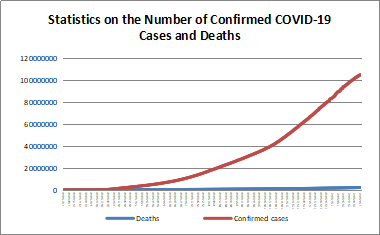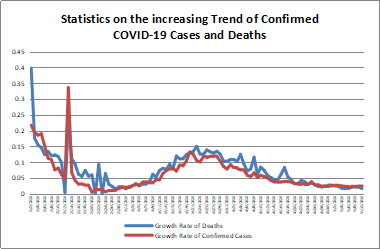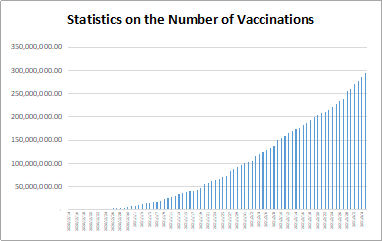IMF, OECD, World Bank Group and WTO Released a Joint Report to Share Views on Government Subsidies
Time:2022/05/18 BJT
1. Key concerns
On May 5, 2022, the International Monetary Fund (IMF), the Organisation for Economic Cooperation and Development (OECD), the World Bank Group and the World Trade Organization (WTO) jointly held an online event to share their views on government subsidies and the report prepared by their staff teams.
In her opening remarks to the event, WTO Deputy Director-General Anabel González noted the significant impact subsidies can have on trade and trade policy. For example, subsidies can distort trade and investment flows, undermine the predictability and stability created by trade commitments, and erode public support for open trade. In addition, issues have emerged which have prompted new debates about the role of subsidies. These issues include the global value chains; digital markets; the global importance of economies in which the state plays a central role, and of international state-owned enterprises; and the urgent challenge of climate change. To address these issues, “Dealing constructively with subsidies could go a long way to ease the pressures weighing on the WTO and revitalize global trade.,” added DDG González.
The event presented and took stock of the report jointly released by the four organizations. The report focuses on subsidies with possible harmful international effects - especially those that have the potential to distort trade or investment, including by eroding existing tariff bindings and promoting subsidies harmful to the global environment. These subsidies may take the form of direct government spending, tax incentives, equity infusions, concessional loans, the provision of goods and services on favorable terms, and price support policies. According to the report, the increasing use of subsidies has also led to increasing resort to anti-subsidy actions, and the most notably ones are countervailing duty measures. However, the information on subsidies is weak, and greater international cooperation on subsidies is needed to bring greater openness and predictability to global trade.
Other participating experts also gave their views on the report. World Bank senior economist Jose Signoret noted that subsidies are the most frequent form of intervention used by governments after the financial crisis of 2008, surpassing measures such as tariffs and other non-tariff measures. Most recorded subsidy programmes are implemented by the largest trading economies that have the potential to influence the global market,” Mr Signoret said. However, “unlike in agriculture, evidence on the scope and scale of government support in industrial sectors remains relatively scarce. “Improving transparency is a fundamental first step in addressing subsidies,” said Julia Nielson Deputy Director of the OECD's Trade and Agriculture Directorate. “Subsidies are notoriously hard to reform, it's easier when others are doing it as well.” Stepping up international cooperation on subsidies “is absolutely essential,” she added. “You can learn from the experience of others in terms of how to design subsidies, but also how to reform them in the most appropriate way.” Alex Keck, head of Global Economic Analysis with the WTO's Economic Research and Statistics Division, said existing international rules, including the WTO's Agreement on Subsidies and Countervailing Measures, provide a strong basis for regulating subsidies. Nevertheless, there are long-standing and more recently exposed gaps in the rules that have “given the impression that there is room for more precision or maybe for some additions”. “Experience has also shown that improved transparency, analysis and dialogue has helped to develop better rules. This also applies in going forward,” he added.
2.Briefing on COVID-19 Pandemic(Issue No.191)
According to WHO statistics, calculated numbers of confirmed COVID-19 cases and deaths reached 515,192,979 and 6,254,140 by May 9, 2022. The US, Germany, Australia, Italy and South Korea were the five countries (regions) with the highest number of new confirmed cases in the past seven days. The US, Germany, Australia, Italy and South Korea were the five countries (regions) with the highest number of new deaths in the past seven days.


https://covid19.who.int/
WHO launches first ever Global Report on Infection Prevention and Control, providing global situation analysis and updating new data from scientific studies. Statistics from Our World in Data, an online research site of the University of Oxford, presented that 11,663,927,847 doses had been administered globally by May 9, 2022. On May 6, 2022, the World Health Organization (WHO) released news that it is previewing the first ever Global Report on Infection Prevention and Control which brings together evidence from scientific literature and various reports, and new data from WHO studies. The report provides the global situation analysis of how infection prevention and control (IPC) programmes are being implemented in countries around the world, addresses the impact and cost-effectiveness of IPC programmes and the strategies and resources available to countries to improve them. In the last five years, WHO has conducted global surveys and country joint evaluations to assess the implementation status of national IPC programmes. Comparing data from the 2017–2018 and the 2021–2022 surveys, the percentage of countries having a national IPC programme did not improve; furthermore in 2021–2022 only four out of 106 assessed countries (3.8%) had all minimum requirements for IPC in place at the national level. However, encouraging progress has been made in some areas, with appointed IPC focal point, a dedicated budget for IPC and curriculum for front-line health care workers’ raining; developing national IPC guidelines, using multi-modal strategies for IPC interventions, and establishing Hand Hygiene compliance as a key national indicator.

https://ourworldindata.org/covid-vaccinations
In terms of the restrictions taken by countries (regions), there are different levels of measures adopted against COVID-19. Most countries (regions) are gradually relaxing their previous pandemic restriction measures to different levels, or implementing new policy on fighting against the pandemic. In America, according to CNBC, a senior Biden administration official said the US will have to limit the new vaccine to high-risk groups this fall if Congress fails to approve funding for the fall vaccine. Canada officially ended the Canada Emergency Response Benefit for the COVID-19 on May 9, and the federal government has indicated that it has no plans to update its new support programs. In Europe, the new "Meeting- & EventBarometer 2021/2022" report from the German National Tourist Board, the European Association of Event Centres and the German Convention Bureau analyses 2021 key data for the meetings and events market in Germany and concludes that hybrid and virtual models and sustainable event planning are important; hybrid events are already one of the future drivers of business events. In Italy, the new decree on the prevention and control of the COVID-19 pandemic, which came into force on May 1, still requires the wearing of masks when travelling on public transport and in performance venues. The "green code" has been removed from all locations except for health professionals and hospital staff. In Oceania, New Zealand reopened its borders to visa-free countries on May 2, 2022. In Asia, Japan's Tokyo Metropolitan Government lowered its COVID-19 status alert level from its highest Level 4 to Level 3 on April 28, for the first time in three and a half months since January 13 this year. South Korea announced that people will not be required to wear masks outdoors from May 2, following the full lifting of measures to prevent the outbreak of COVID-19. The government plans to adjust the mandatory quarantine measures for confirmed cases three weeks later, depending on the situation of the pandemic and the healthcare system.


